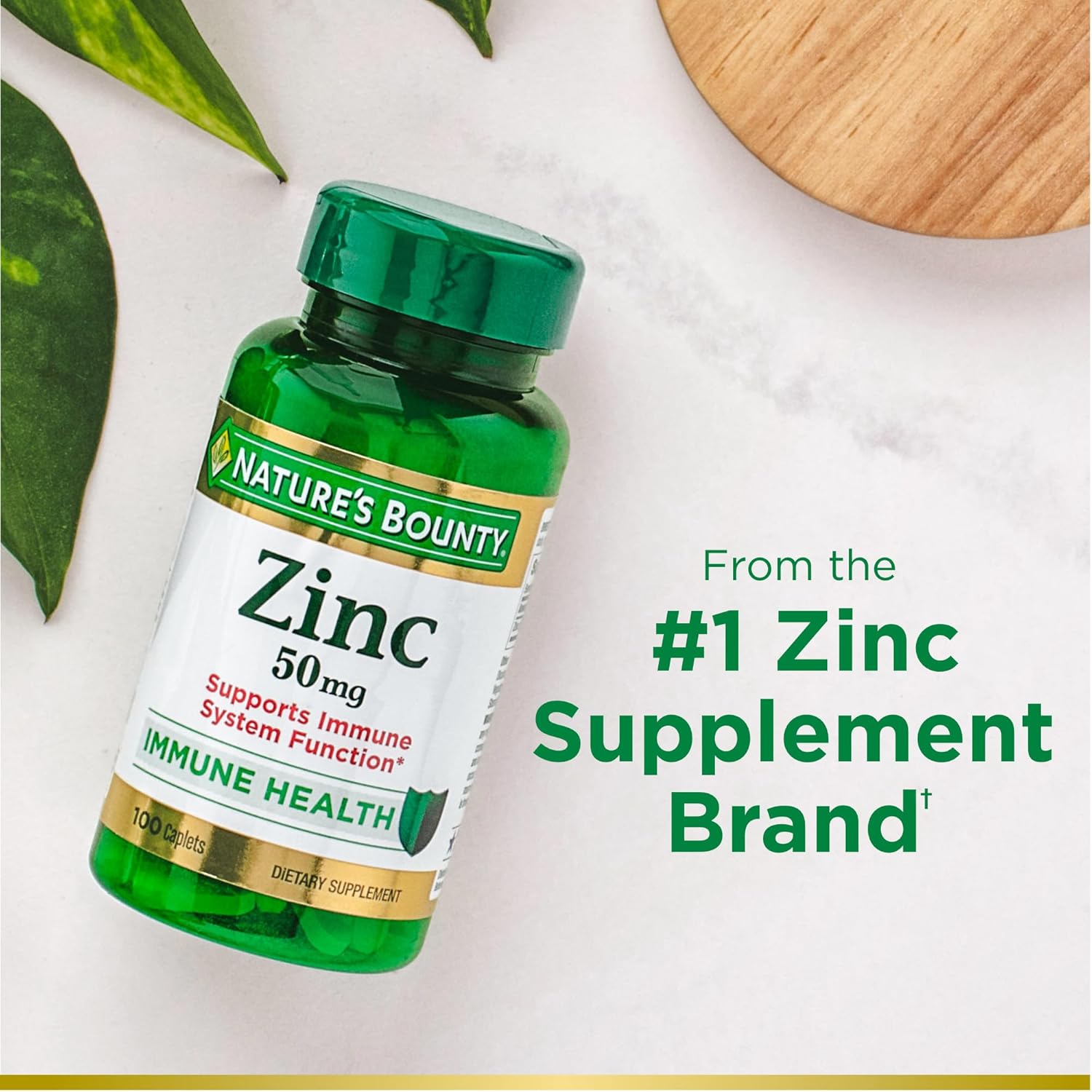





Price: $6.69 - $4.48
(as of Apr 05, 2025 03:47:16 UTC - Details)
What's the Best Time to Take Zinc? A Comprehensive Guide
Introduction
Are you wondering about the best time to take zinc? You're not alone! Zinc is a vital mineral that plays a key role in numerous bodily functions, including immune support, wound healing, and DNA synthesis. However, figuring out the optimal time to incorporate zinc into your daily routine can be a bit tricky. In this article, we’ll explore the best practices for taking zinc, answer common questions, and provide practical tips to maximize its benefits. So, let’s dive in and discover everything you need to know about zinc timing!
Understanding Zinc and Its Benefits
What is Zinc?
Zinc is a trace mineral essential for human health. It contributes to various biological functions, including the immune system's effectiveness and the healing of wounds. Despite its importance, many people don't get enough zinc in their diets.
Why is Zinc Important?
Zinc plays a critical role in several bodily functions:
- Immune System Support: Zinc helps activate T-cells, which are crucial for immune response.
- Wound Healing: It promotes collagen synthesis and cell division, aiding in healing.
- Taste and Smell: Zinc is necessary for the proper functioning of taste and smell receptors.
Best Time to Take Zinc for Maximum Absorption
Morning vs. Night: When Should You Take Zinc?
One common question is whether to take zinc in the morning or at night. Research suggests that taking zinc in the morning can enhance absorption. However, if you find that it upsets your stomach, consider taking it with dinner.
Morning Benefits
Taking zinc in the morning can kickstart your day, providing energy and supporting your immune system right from the start.
Evening Considerations
If you experience nausea or digestive discomfort, taking zinc in the evening with food can help mitigate these side effects while still allowing for effective absorption.
Zinc and Food Interactions
Should You Take Zinc with Food?
Another important aspect to consider is whether to take zinc with or without food. While some studies suggest that zinc is better absorbed on an empty stomach, taking it with food can prevent gastrointestinal issues.
Taking Zinc on an Empty Stomach
Taking zinc on an empty stomach may increase its absorption. However, this method may not be suitable for everyone, especially those with sensitive stomachs.
Taking Zinc with Food
For those prone to stomach upset, taking zinc with a meal can help. Just be mindful of certain foods that may hinder absorption, such as high-fiber foods, dairy, and certain grains.
The Best Zinc Supplements
Which Zinc Supplements Should You Choose?
When selecting a zinc supplement, consider the form of zinc. Common forms include zinc gluconate, zinc citrate, and zinc picolinate. Each has its absorption rates and benefits.
Zinc Gluconate
Zinc gluconate is one of the most common forms and is well-absorbed. It’s often used in cold remedies and immune support supplements.
Zinc Citrate
Zinc citrate is another popular option, known for being gentle on the stomach while still providing good absorption.
Zinc Picolinate
Zinc picolinate is touted for its superior absorption and bioavailability, making it a preferred choice for many health enthusiasts.
How Much Zinc Should You Take?
Recommended Daily Allowance
Determining the right dosage of zinc can be tricky. The recommended dietary allowance (RDA) for adult men is about 11 mg, and for adult women, it’s about 8 mg. However, individual needs may vary based on diet, lifestyle, and specific health conditions.
Signs of Zinc Deficiency
If you’re experiencing symptoms like weakened immune function, hair loss, or delayed wound healing, you might need more zinc. However, it’s essential to consult a healthcare provider before increasing your intake.
Potential Side Effects of Zinc
Can Zinc Cause Side Effects?
Like any supplement, zinc can cause side effects, especially if taken in excessive amounts. Some common side effects include nausea, vomiting, and diarrhea.
Managing Side Effects
To minimize side effects, start with a lower dosage and gradually increase it as your body adjusts. Always take zinc with food if you’re sensitive to its effects.
Conclusion
In summary, the best time to take zinc depends on your individual needs and how your body reacts. Whether you choose to take it in the morning or evening, with or without food, the key is to find a routine that works for you. Remember to opt for high-quality supplements and consult with a healthcare provider if you're unsure about your zinc intake. By incorporating zinc correctly into your daily routine, you can reap its numerous health benefits and support your overall well-being.
So, if you're still wondering about the best time to take zinc, consider your personal preferences, listen to your body, and enjoy the many advantages this essential mineral has to offer!
SUPPORTS IMMUNE HEALTH (1): Zinc is a trace element that plays a vital role in immune support (1)
ANTIOXIDANT SUPPORT: Zinc can function as an antioxidant in the body, contribute to skin and bone health, and assist in the formation of DNA. (1)
THE #1 ZINC BRAND (2): Nature's Bounty is the number 1 brand for zinc supplements. (2) Our Our Zinc Caplets are non-GMO and sugar- and gluten-free
SKIN HEALTH: As a component of the enzyme collagenese, Zinc has been clinically studied for its contribution to skin health (1)
FROM THE TRUSTED WELLNESS EXPERTS: Nature’s Bounty Zinc supplements are a product of 50 years of dedication to quality, consistency, and scientific research to make vitamins and nutritional supplements of unrivaled excellence
